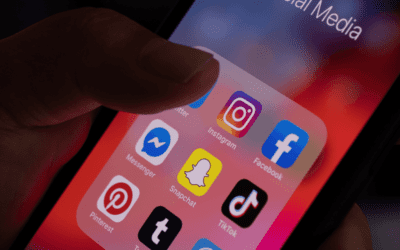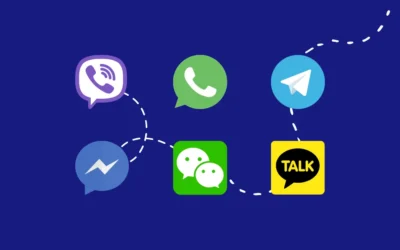Social media has evolved far beyond its initial purpose of socializing. Today, platforms like Facebook, Twitter, LinkedIn, Instagram, and even TikTok play a significant role in education, learning, and professional development. With the rise of e-learning, social media has become a powerful tool for both educators and students to connect, share resources, and enhance the learning experience. Here’s how social media is shaping education and e-learning:
1. Facilitating Collaboration and Communication
Social media platforms provide a space for collaboration and communication among students, educators, and experts. For instance, Facebook groups, LinkedIn communities, and Slack channels are increasingly used to foster discussions, share knowledge, and solve problems collectively. Students can join study groups, ask questions, and discuss course materials in real time, breaking down the barriers of traditional classroom learning. This collaborative approach also helps create a sense of community, even in virtual learning environments.
2. Access to Learning Resources
Social media has revolutionized how students access educational content. Platforms like YouTube, Instagram, and Pinterest offer a wealth of educational videos, tutorials, and infographics that supplement traditional textbooks. Teachers and students share materials such as lecture notes, e-books, and multimedia content through social media, making learning more dynamic and accessible. Content from subject-matter experts, educational institutions, and online courses can be found and accessed on a variety of platforms, creating a more inclusive learning environment.
3. Connecting with Experts and Mentors
Social media enables students and educators to connect with experts, mentors, and professionals in their fields of study. LinkedIn, Twitter, and professional forums allow individuals to engage with thought leaders, ask questions, and seek advice. This helps bridge the gap between academic learning and real-world applications, offering students a chance to gain insights from professionals and industry leaders. Such connections can also open doors to internships, career opportunities, and networking, which are crucial for personal and professional growth.
4. Promoting Lifelong Learning
Social media promotes continuous learning by providing platforms for knowledge sharing beyond formal education. Communities on platforms like Reddit and Twitter foster discussions around current trends, industry updates, and skill development. Professionals can stay updated on advancements in their fields, while anyone can take part in lifelong learning through free online courses and webinars. Social media platforms encourage self-directed learning, where users can seek out educational content and discussions on topics they’re passionate about, without the constraints of a formal classroom setting.
5. Increased Engagement through Interactive Content
The interactive nature of social media makes it ideal for engaging students and encouraging active participation. Educational content on Instagram stories, TikTok videos, or live-streamed sessions on platforms like Facebook and YouTube keep students engaged through quizzes, polls, challenges, and real-time feedback. These interactive features foster an engaging learning environment, making education more fun and immersive.
6. Access to Global Learning Communities
Social media enables access to global networks of learners and educators. Students from different parts of the world can connect, collaborate, and learn from each other. This global perspective enriches the educational experience, offering students a diverse range of viewpoints and knowledge. It also fosters cultural exchange, helping students develop a more global outlook, essential for their personal and professional development.
Conclusion
The role of social media in education and e-learning has become indispensable. By enabling collaboration, offering access to resources, connecting students with mentors, promoting lifelong learning, and increasing engagement, social media platforms are shaping the future of education. As e-learning continues to rise, social media’s role in education will only become more vital, helping to create a more dynamic, accessible, and global learning environment.




